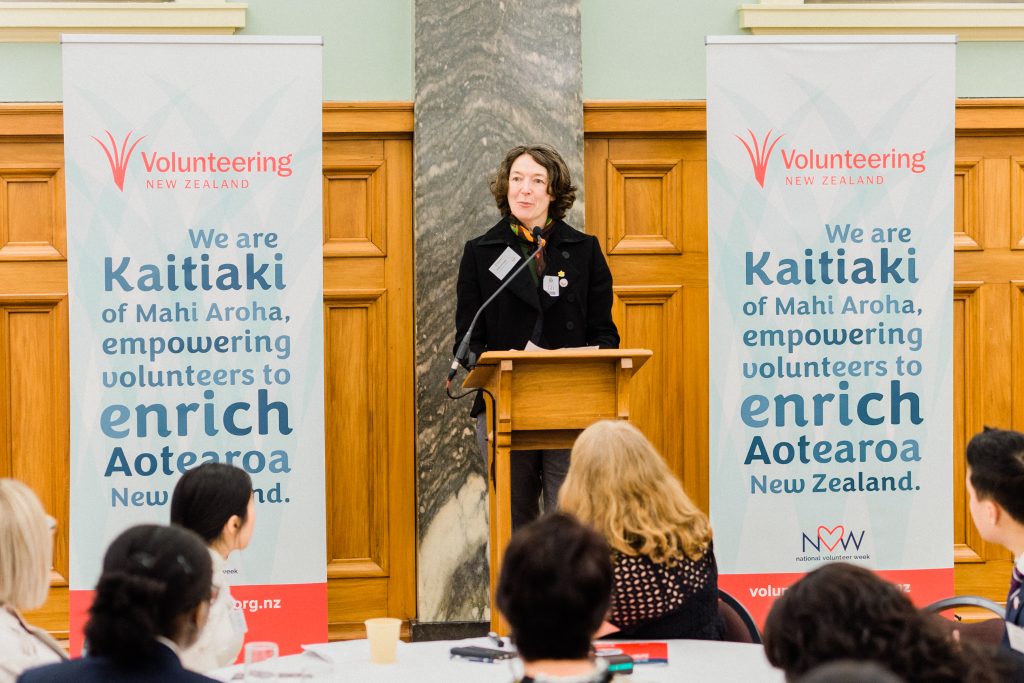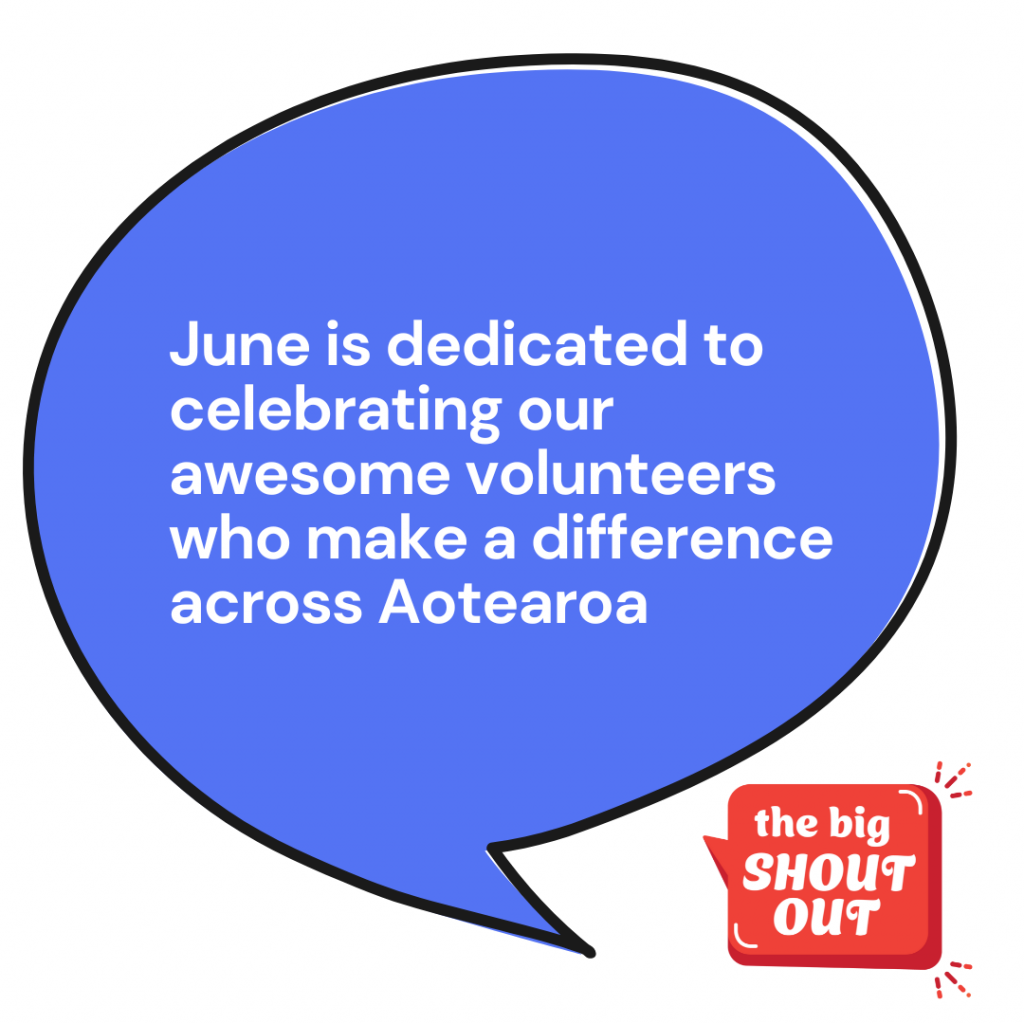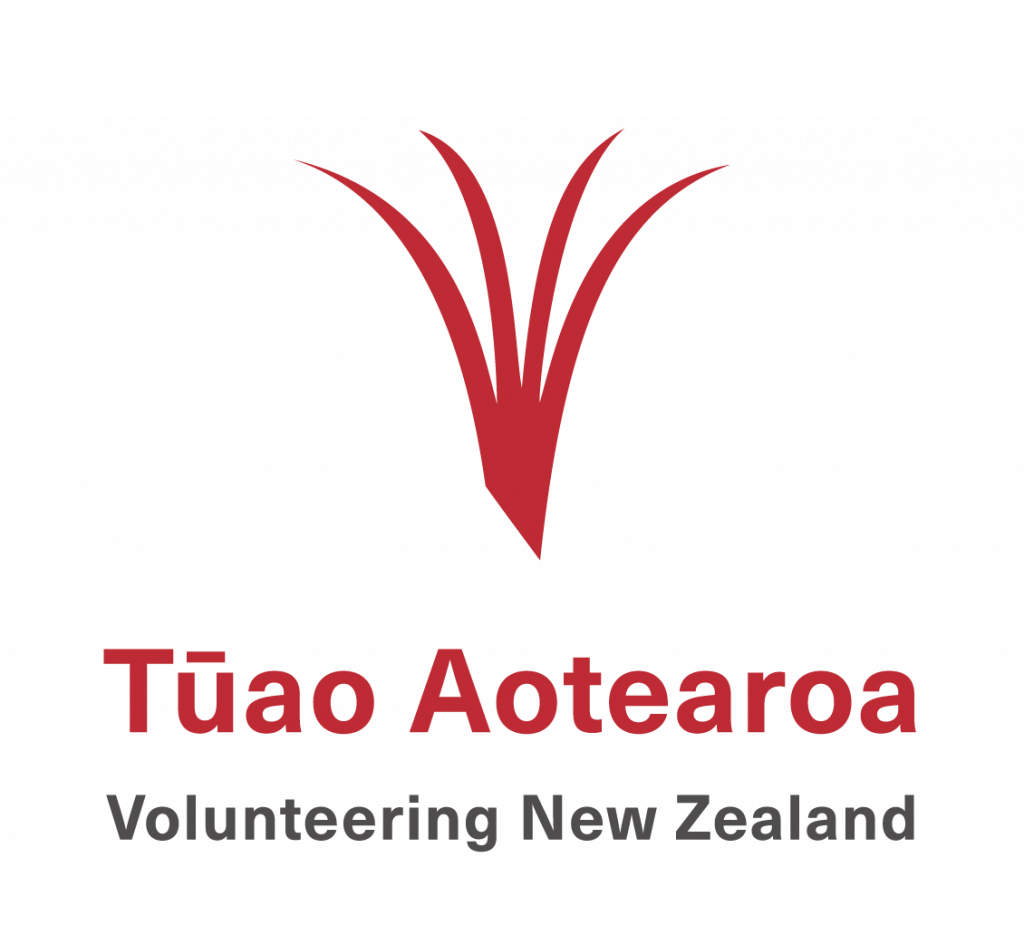
Life is about making an impact.
Recently I attended the investiture of Prof Karen Smith, previous Chair of Volunteering New Zealand, who was made member of the Order of Merits for her contribution to volunteering through her research, leadership and local action. It was an awe-inspiring event, mainly because most recipients were recognised for their volunteer effort. People like Pat Dance who joined the NZ Kennel Club in 1971 and has since held various leadership roles, and Ian Coard who has been a volunteer with Coastguard for 31 years or Jan Elizabeth, one of IHC’s life members or Marie Fitzpatrick and Nicole Murray, the co-founders of Good Bitches Baking. It highlighted for me that as a country we can’t do enough to ensure that the volunteer effort that is the glue to our society is noticed.
It won’t come as a surprise that the first strategic priority of Volunteering New Zealand is to recognise the value of volunteering. That means:
- nurturing and championing the mana of volunteering in its many forms
- recognising, supporting and measuring the contribution of mahi aroha
We do that by organising events such as National Volunteer Week and Student Volunteer Week and by celebrating International Volunteer Day. These opportunities are vehicles for you to recognise the impact of the volunteers you work with and by combining our voice we can make sure that the value of volunteering impact does not go unnoticed.
Measuring the value of volunteering
When we say value, how do we measure that? You have probably all heard before that the contribution of the volunteering sector to our GDP is the same as the contribution of the construction industry.
But we rely on sketchy data to measure volunteer impact:
- While the new mandatory reporting standards for charities have been in place for a while, Charities Services still hasn’t come up with meaningful ways to measure the volunteer contribution. Charities need to specify in great detail their finances. But when it come to the time contribution the guidelines say no more than “just take an average of your number of volunteers and the numbers they contribute”.
- It took nine years before the 2004 Non-profit Organisations Satellite Account was repeated. And that was five years ago.
- The results of the 2013 Satellite Account show that the value of volunteer labour to GDP through non-profit organisations was calculated at $3.5 billion. We all know that volunteering through an organisation is only part of the picture. It doesn’t take into account the mahi aroha at a marae, someone plogging on a Saturday morning or the effort it takes to organise a street party for Neighbours Day.
And measuring the economic value of the goods and services that volunteers produce is only part of the picture. As Robert F. Kennedy said in 1968: “[GDP] measures neither our wit nor our courage, neither our wisdom nor our learning, neither our compassion nor our devotion to our country, it measures everything in short, except that which makes life worthwhile.”
And whilst volunteering is now a wellbeing indicator (partly through advocacy effort by Volunteering New Zealand), the value of volunteering as a wellbeing measure is not known.
The social impact
So, I am a bit of a fan of Andrew Haldane, chief economist of the Bank of England. He is also founder of Pro Bono Economics, a matchmaker between volunteer economics and charities to work on measuring the social impact of charities’ activities. In 2014 he gave a speech titled “In giving, how much do we receive? The social value of volunteering”. In that speech he clearly laid out that the value of volunteering is not just to the recipient but also to the provider and to wider society.
He starts off with measuring the economic value of volunteering (basically the value of the goods and services delivered through volunteering). Then he discusses the personal benefits of people volunteering, for example increasing skills and employability or the impact it has on a person’s health and wellbeing (did you know that volunteering contributes as much to someone’s wellbeing as playing sports?). And finally he addresses the society impact of volunteering, the money saved to society by addressing issues.
Let me give you an example of that. I might be a driver with an organisation such as Red Cross or Cancer Society and my job is to take people, who don’t have access to transport, to hospital appointments. Or for that matter, I might take my neighbour to such an appointment. The economic value of this activity would be equivalent to what it would cost if this service was delivered for example through a taxi company, i.e. the value of the service (which is different than calculating my hourly rate at a minimum wage rate and a bit of fuel).
Through this activity I may be able to demonstrate to prospect employers that I am reliable, have good people skills and know how to deal with confidentiality. In other words, this activity could increase my employability and at the same time improves my health and wellbeing, sense of worth and purpose. This would be the personal value (to the provider of the service).
The society impact of this activity could be calculated by measuring the financial benefit because the ‘did-not attend’ rates at the hospital are reduced. It would also include things such as the saving on health care because the person actually received treatment and therefore doesn’t require more invasive treatment as his condition was managed rather than becoming worse if he hadn’t been able to complete his treatment. I am not an economist, so other people are probably way better at demonstrating the value of this activity.
Haldane explains that most charities are not good at demonstrating the true societal value of their activity as it requires a lot of expertise and time – aka money – to properly calculate this, and most charities would rather use this money to actually deliver services!
So why is this important? Civil society or the ‘community glue’ is something that traditionally used to be strong in New Zealand. But society is changing. Whilst according to the World Giving Index, we are still in the top five for volunteering, we dropped from 44% of the population volunteering in 2016 (ranking number four) to 40% of the population volunteering in 2018.
And it is only a few months since the horrific terrorist attack in Christchurch showed us that our sense of unity and sense of belonging that used to be a given is now something that we can’t take for granted but actively needs protection. Now more than ever we need to weave people together and volunteering can play a role.
Demonstrating value
But we structurally underinvest in volunteering and civil society. It is not taken seriously like the private sector, or even the public sector, because we don’t measure it and therefore we need to make the sector more visible and prominent.
It will be hard, if not impossible, to leave it to the volunteering sector to demonstrate its worth so we need agencies such as Statistics NZ to measure the social contribution of the sector as a whole to highlight the value of its social contribution.
It’s up to each of us to stand up for volunteers and volunteering in our own environments to ensure volunteering is impactful. For larger organisations this could mean ensuring that paid professionals work in partnership with the volunteers that come from the communities they serve, for informal settings it could mean that it is inclusive, for Volunteering New Zealand this could mean engaging with government agencies to ensure that policies support rather than hinder volunteering. For the Government this could mean developing volunteering strategy that underpins the aspiration of a country where people are working, caring, learning or volunteering.
At Volunteering New Zealand, our aspiration is that volunteering defines who we are as a nation. We thrive and are enriched by the goodwill of volunteers in every community, and we undertake mahi aroha because of our whanaungatanga, we build new connections and relationships because we volunteer. Whatever it is what drives us, our mahi is for the benefit of our marae, our school, our environment, our community, for Aotearoa New Zealand.
 This blog is adapted from a speech made by Volunteering NZ’s Chair Helga Wientjes at the organisation’s Pivot Conference 2019.
This blog is adapted from a speech made by Volunteering NZ’s Chair Helga Wientjes at the organisation’s Pivot Conference 2019.
View Volunteering New Zealand’s 2019-2022 Strategic Plan here.





About The Author: Michelle Kitney
Chief Executive, Volunteering New Zealand
More posts by Michelle Kitney